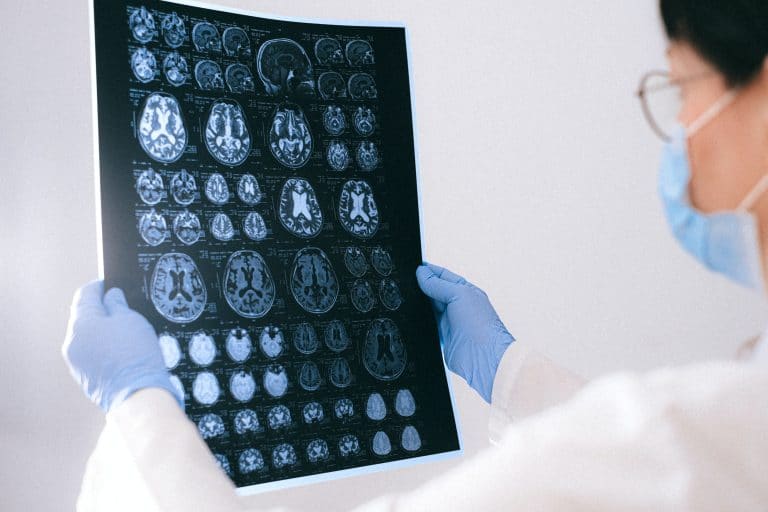Scientists have known about the connection between hearing loss and dementia for some time. A new study looking at changes in the brain of patients with hearing loss and Alzheimer’s Disease (AD) may offer more insight as to why.
Previous Research on Hearing Loss and Dementia 
A previous study from John Hopkins University found that hearing loss may contribute to a faster rate of atrophy in the brain. The same research also shows that hearing loss is associated with a higher risk of dementia. The more severe the hearing loss the higher the risk of cognitive decline becomes.
Changes in Brain Structure May Explain Hearing Loss Link
A 2020 study from the Carle Illinois College of Medicine compared MRIs of people with AD and hearing loss to those with AD and normal hearing. They found a higher incidence of shrinkage in the brainstem and cerebellum in patients with both hearing loss and AD.
Researchers were intrigued by these findings. They had expected to find changes to the temporal lobe, as that is the brain’s auditory and language processing center.
“This is a surprising finding but one that relates to newer studies that link Alzheimer’s Disease with dysfunction in auditory function which requires cerebellar activation,” said Susie Kwok, medical student and collaborator on the study.
Meanwhile, Dan Llano, lead researcher and associate professor of biomedical and translational science at Carle Illinois, is optimistic that this research could aid in the discovery of early intervention measures.
“Our hope is that eventually, this work will help us to come up with better diagnostic and treatment strategies for Alzheimer’s Disease and dementia more generally,” said Llano.
Using Hearing Aids to Protect Your Mind
One intervention method that may prevent or delay the onset of cognitive decline and dementia is treating hearing loss with hearing aids.
While researchers don’t quite know what fuels the connection between hearing loss and dementia, it’s believed that a lack of brain stimulation plays a part. Hearing loss decreases brain stimulation in several ways:
- Depriving the parts of your brain that process sound. This deprivation may lead to the structural changes seen on brain scans of those with hearing loss.
- Social isolation. Some people with hearing loss tend to isolate themselves from others as a response to feeling frustrated and overwhelmed in social situations.
Hearing aids can help remedy both of these issues.
- They help you hear and process more sounds which allows your brain to receive proper stimulation.
- They make it easier to engage with others when dining out at Local Kitchen or other social situations.
If you have additional questions or would like to make an appointment with one of our specialists, contact Torrance Audiology today.
